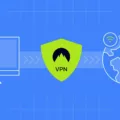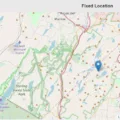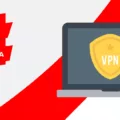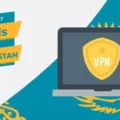In today’s world, it’s crucial that you stay safe and secure when using the internet. With the growing number of cyber-attacks and data breaches, it is important to find ways to protect yourself from malicious activity. One such way is by using a VPN (Virtual Private Network) when connecting to Wi-Fi.
What is a VPN? A VPN is a way of connecting to the internet securely by encrypting your data and masking your IP address. Doing so helps protect your personal information from being accessed or stolen by hackers. It also allows you to access geo-restricted content, making it great for streaming services like Netflix or Hulu in different countries.
Why should I use a VPN with WiFi? Whenever you connect to public Wi-Fi, you are at risk of having your data intercepted by malicious actors. This means that anyone connected to the same network can potentially gain access to your confidential information, such as passwords and credit card numbers. By using a VPN with WiFi, you create an encrypted tunnel between your device and the network’s server – making it much more difficult for hackers to gain access to your data.
How do I set up my own VPN? You can easily set up your own VPN with popular services like ExpressVPN or NordVPN. All you need to do is sign up for an account, download their software onto your device, and then follow the instructions provided by the service provider in order to get it running properly on your device.
using a VPN with WiFi is essential in today’s digital world if you want to ensure that your online activity remains private and secure while browsing online on public networks. Not only does it help protect your data from being accessed by malicious actors, but it also gives you access to geo-restricted content that may not be available in certain areas of the world otherwise.

Using VPN on Wi-Fi
Yes, you can use a VPN on Wi-Fi. A virtual private network (VPN) is a technology that encrypts your online activity and provides an extra layer of security when you are using a public or unsecured Wi-Fi network. With a VPN, all your data is securely routed through an encrypted tunnel so that it cannot be intercepted by anyone else on the same network. This means that with a VPN you can browse the web safely and securely even when using public Wi-Fi. Additionally, with a VPN you can access websites and services that may be blocked or restricted in your country or region.
The Function of a VPN in WiFi
A VPN (Virtual Private Network) provides a secure connection to the internet when using WiFi. It creates an encrypted virtual tunnel between you and the internet, which disguises your IP address and hides your location from anyone tracking your online activity. This means that any external attack is unable to access your data traffic, making it far more secure than using public WiFi without a VPN. Additionally, your data traffic is also transmitted over a more secure connection compared to non-VPN connections, ensuring a more reliable experience.
Does a VPN Hide a User From Their Wi-Fi Provider?
Yes, a VPN can hide you from your Wi-Fi provider. When you connect to a VPN, all of your traffic is routed through an encrypted tunnel and sent to a remote server. This means that your Wi-Fi provider is unable to see the websites you’re visiting or the data you’re sending. Your IP address is also hidden by the VPN, so your online activity appears to come from the IP address of the VPN server instead of yours. By using a VPN, you can ensure that your online activity remains private and secure when connected to a public or shared Wi-Fi network.
The Cost of a VPN
The cost of a VPN depends on various factors, including the features and services you want, the length of your subscription, and the type of VPN you choose. Generally speaking, most VPNs cost between $5 to $15 per month. However, if you sign up for a longer-term contract (such as an annual or two-year plan), you’ll likely find more affordable rates.
On average, annual plans cost around $8.41 per month when broken down into monthly payments, while two-year plans cost about $3.40 per month. When signing up for a long-term plan, be sure to read the fine print carefully so that you understand all of the terms and conditions associated with your purchase.
Conclusion
In conclusion, a VPN can be a great asset for anyone looking to improve their online privacy and security. It provides a secure connection between two points, allowing users to access the internet without having to worry about their data being intercepted or misused. Additionally, using a VPN while connecting to public Wi-Fi networks is essential to ensure that your data is not vulnerable to hackers. With all the advantages of a VPN, it’s clear why they are becoming increasingly popular amongst those who want to enjoy the convenience of free Wi-Fi without sacrificing their security.








